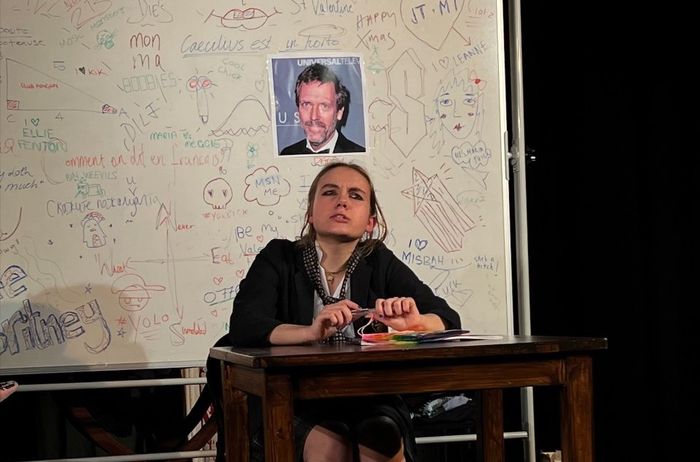The Merchant of Venice preview
Theatre Editor Lewis Andrews talks to co-director Ben Phillips about the upcoming adaption

The Merchant of Venice is a piece with a long and difficult history, with plots and characters that have perpetuated anti-Semitic stereotypes for generations. It exists with us today, not least the character of Shylock, who remains one of the most polarising figures in the English canon. I sat down with Ben Phillips, who is one of the show’s three directors, and some of the cast, to discuss why they believe it is the time to bring this ‘unique’, and reworked, adaptation to the stage.
BP: It has been a long time in the making. It was meant to happen two years ago, then Covid happened. But now seems like a necessary time for this exceedingly difficult, potentially controversial, and messy play – which also means it has so much potential. I am from a Jewish background, and the Jewish characters of the play continue to influence anti-Semitism today. The play is relevant in that sense.
Phillips draws a comparison with Cambridge’s difficult history and the difficulties of the Merchant of Venice, something which he hopes the new theatre space at the Cambridge Union will draw out.
"We have a more streamlined play, a more brutal play"
BP: Staging and setting it in the Cambridge Union, we can explore power dynamics and the oppressive forces that groups who have suffered prejudice have had to face, and indeed continue to face, in Cambridge. […] We have deliberately set it in the Union. There is so much power held in a place like Cambridge.
There is an apparent declaration to not sweep the play, and indeed anti-Semitism, under the rug- instead to hold both it, and our institution, up for discussion. Phillips later suggests this is an act of ‘retribution, making the issues obvious and showing how far they are ingrained in the characters.’ This is no doubt another reason the surroundings are so fitting, given that the Union is a place where one hopes things are debated and scrutinized. This framing has moved the play away from comedy:
BP: This is technically a comedy, but it is not funny. What the Shakespearian audience found funny, we do not. Therefore, we have removed some scenes and lines. We are instead concerned about the pain of Shylock. His life is destroyed; they strip him of his religion and possessions.
"What happens when people have their identities taken away"
I asked whether it was now the ‘Tragedy of Shylock’, to which Phillips replied, and actor Jacob Benhayoun added:
BP: I think so, which is hard because he was written as a stereotype. We have a more streamlined play, a more brutal play.
JB: Romantic relationships at the forefront become darker and more twisted.
BP: Everything impacts Shylock, and everything else is floating on top. Reactions to things are cold, rather than any characters being big, evil villains […] it is about the culture, how casually these characters exercise the hatred that they hold for others.
The cast have thought about form and space in conjunction with these themes. Performing in the round leads them to draw comparisons with the Globe, and they emphasize that they have been able to invert traditional staging with Shylock watching how others talk of him from above on the balcony. Without delving into matters of plot, the moral dilemma of the ending is something Phillips elaborates on:
BP: What happens when people have their identities taken away is important: that erasure, that having to hide.
As means of conclusion, I ask what he would like the audience to leave thinking:
BP: I have talked about the politics and the personal, but I just want the audience to come and think for themselves about what they can see. We are so keen to contextualise, which is why we have arranged engaging speakers for a post-show discussion. We are not putting it on and leaving it at that. We are making specific cuts that can change the entire meaning of a scene. I hope that they see a different Merchant of Venice to the one that is traditionally performed.
The Merchant of Venice, which is also co-directed by Tom Runciman and Georgia Adams, is playing at the Cambridge Union Chamber at 19:30 from the 18th-21st Feb and at 14:00 on the 19th and 21st of Feb.
 Interviews / You don’t need to peak at Cambridge, says Robin Harding31 December 2025
Interviews / You don’t need to peak at Cambridge, says Robin Harding31 December 2025 News / Unions protest handling of redundancies at Epidemiology Unit30 December 2025
News / Unions protest handling of redundancies at Epidemiology Unit30 December 2025 Comment / What happened to men at Cambridge?31 December 2025
Comment / What happened to men at Cambridge?31 December 2025 Features / ‘Treated like we’re incompetent’: ents officers on college micromanagement30 December 2025
Features / ‘Treated like we’re incompetent’: ents officers on college micromanagement30 December 2025 Theatre / We should be filming ADC productions31 December 2025
Theatre / We should be filming ADC productions31 December 2025










